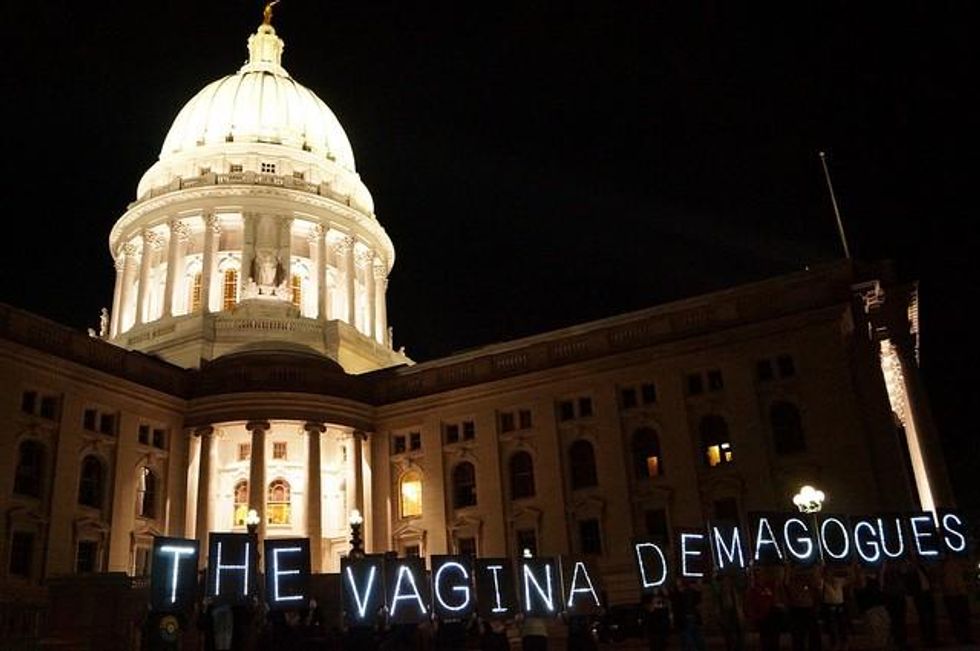In at least a short term victory for women's health in Wisconsin, a federal judge Monday evening ordered a temporary suspension on a portion of a controversial abortion rule which Republican Governor Scott Walker covertly attempted to make law over the July 4th holiday weekend.
In a response to a suit filed against the state by Planned Parenthood and the ACLU of Wisconsin, U.S. District Judge William Conley ordered that an admitting-privileges requirement--which bans doctors without access to a hospital within 30 miles of their practice from performing the procedure effectively forcing the closure of two Wisconsin abortion clinics--be suspended for 10 days, until another hearing on the matter can be held.
According to Reuters, Conley wrote in his decision that if this portion of Act 37 (SB 206) were enforced, there would "almost certainly be irreparable harm to those women who will be foreclosed from having an abortion in the next week either because of the undue burden of travel or the late stage of pregnancy, as well as facing increasing health risks caused by delay."
"This ruling is a step in the right direction for the women of Wisconsin who can now continue to make their own personal, private health care decisions," said Teri Huyck, President and CEO of Planned Parenthood of Wisconsin, in response to news of the suspension. "We are confident that the Court will ultimately recognize if Act 37 is not blocked, it would unconstitutionally restrict the ability of Wisconsin women, including victims of rape and incest and women who are in need of an abortion to preserve their health, to access safe and legal abortions."
The judge, however, did not block the section of the law which requires an ultrasound to be performed on a pregnant woman at least 24 hours before an abortion.
______________________________

